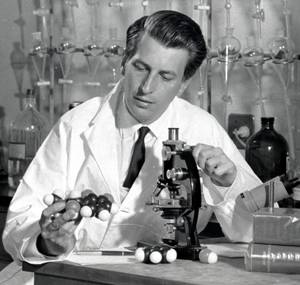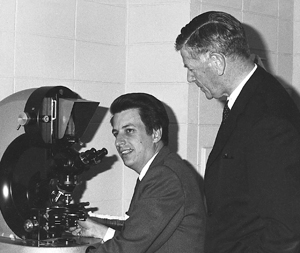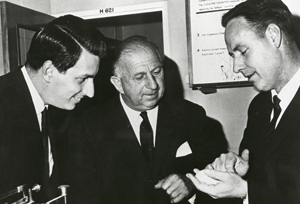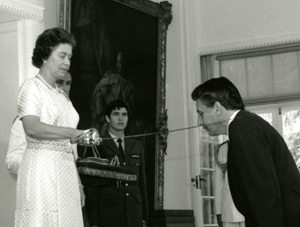Under his leadership, many eminent scientists were drawn to the institute.
Professor Ian Mackay pioneered clinical research on autoimmunity and began treatment of autoimmunity with immunosuppressive drugs – still the gold standard today.
Professor Don Metcalf discovered the colony stimulating factors (CSFs) that have now helped more than 20 million cancer patients worldwide to recover from chemotherapy, and which have revolutionised blood stem cell transplantation.
Immunology research continued to grow from its Burnet-era expansion. Professor Jacques Miller was recruited from London. Building on his seminal discovery of the function of the thymus, he discovered that T lymphocytes derived from the thymus helped B lymphocytes create antibodies. At the same time, Professor Ken Shortman began his groundbreaking analysis of T cell development, which expanded into studies of dendritic cells.
Professor Suzanne Cory and Professor Jerry Adams were recruited by Sir Gus to introduce the nascent field of molecular biology to the institute. Their research first contributed to uncovering how the immune system generates diverse antibodies – by rearranging antibody genes within B cells. The research ventured into studies of gene rearrangements in leukaemia, and from there to understanding cell death, research which Professors Cory and Adams continue today.
Sir Gus initiated a research program into globally significant parasitic diseases, including malaria, into the institute. The immunoparasitology research team, led by Dr Graham Mitchell, started in a small way but rapidly expanded. This was the foundation from which our Infection and Immunity researchers continue today.






